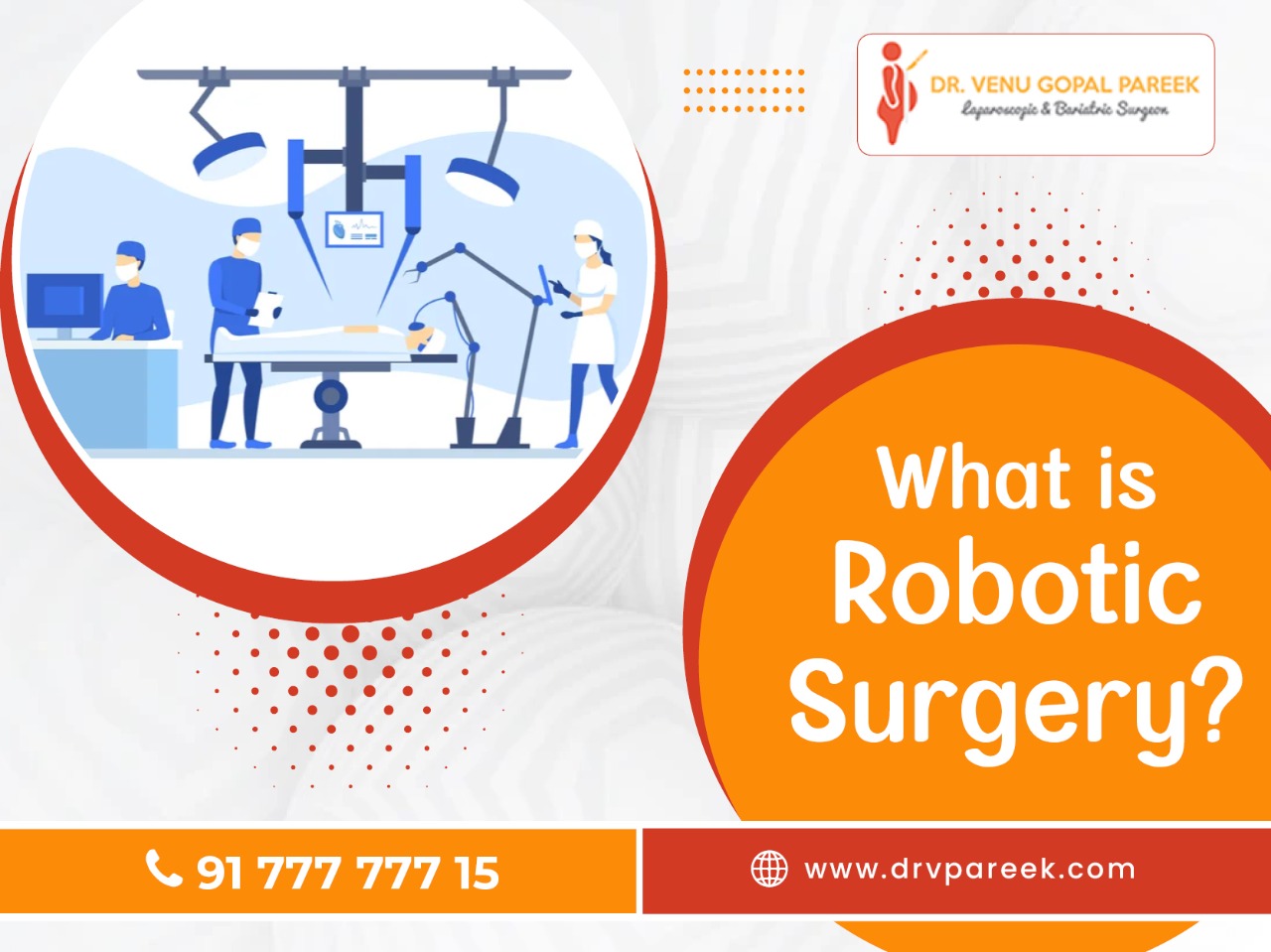
What is Robotic Surgery ?
Robotic surgery, often called robot-assisted surgery, is a type of surgical procedure performed using robotic systems. They are known for performing various complex surgeries with more accuracy, flexibility and control, which may not be possible in traditional techniques. The goal of developing robotic-assisted surgery was to overcome the drawbacks of minimally invasive surgical procedures and to improve the skills of doctors practising open surgery.
Robotic surgery is mainly associated with invasive methods, which are performed by making tiny incisions and are less seen it’s usage in open surgical procedures.
Robotic surgery offers its services in gynecologic surgery, prostate surgery, head & neck surgery, colorectal surgery, gastrointestinal surgery, bariatric surgery,heart surgery, joint surgery etc. The recent advancements extended its services in bariatric surgeries as well. Robotic-assisted bariatric surgery is trending now because of its flawless benefits.
What is robotic weight loss surgery?
Experienced bariatric surgeons perform bariatric surgery with the help of a robotic system called the da Vinci Robotic System or Hugo Ras by Medtronic .This robotic-assisted surgery involves making small incisions of the size of your fingertip rather than large abdominal incisions, making it less invasive than open bariatric surgery.
Gastric bypass and sleeve gastrectomy procedures can also be carried out with robotic assistance utilizing the Hugo Ras system. Using the Hugo Ras system, your surgeon performs the operation while sitting in the operating room at a console, which he or she operates by controlling the small robotic hands. The device provides high-definition 3D pictures that give your surgeon a clear view of the surgical region that is magnified ten times beyond what the human eye can perceive.
Who is eligible for robotic weight loss surgery?
Robotic surgery may be an option for severely obese patients. Body Mass Index (BMI) higher than 40 is considered as severe obesity. It refers to people who are overweight by more than 45kg.
Additionally, if you have diabetes or high blood pressure along with a BMI over 35, you may qualify for undergoing robotic bariatric surgery.
The surgeon has better control over the movements while operating on the highly obese patient because of the improved visibility that the robotic system provides.
Benefits of robotic bariatric surgery
Bariatric surgeons may perform surgery with more precision and control thanks to the Hugo Ras Surgical System, which improves the visibility of the internal organs during the surgery.
Robotic bariatric surgery has a number of potential advantages over traditional laparoscopic weight loss operations, which include the following:
- Faster recovery time
- Less pain
- The scars are small and almost become invisible over time
- Can return to normal activities quickly
- Less surgical complications
- Less physical trauma
- Lowers the risk of infection
- Shorter stays in the hospital
- Significantly less risk of gastrointestinal leakage
- Reduces the need for follow-up surgery
Recovery from a robotic weight loss procedure
The majority of patients who have undergone robotic bariatric surgery can anticipate a two- to three-week recovery period following surgery. To assist your body in healing during recovery time, you must get enough rest.
Following your surgeon’s instructions on the diet after surgery is key to recovery because they advise you on what to eat, how much to eat and when to eat during recovery, especially in the first few weeks. It would be best if you restricted yourself from performing any kind of strenuous activities like exercise during your recovery time.
Know more about Dietary Guidance after Intra-gastric Balloon Insertion
Develop a long-term strategy in collaboration with your bariatric surgeon and weight reduction team once you are ready to introduce a regular exercise program.
Keys factors to maintaining long-term success after robotic weight loss surgery
Weight loss surgery is not a quick fix, so dedicating yourself to a healthier lifestyle afterward is very important. There are several key factors that contribute to a successful robotic weight loss procedure:
- Eat a balanced meal three times every day and refrain from snacking.
- Drink more water and keep yourself hydrated all day long
- Every meal should contain protein; ideally, consuming protein first is better because it will enable you to eat less food overall.
- Regular physical activity (exercise)
Surgical experience varies from surgeon to surgeon. If you are considering a Hugo Rad , be sure to discuss the outcomes you can expect with your surgeon. You and your surgeon can come to a conclusion about whether da Vinci surgery is the right option for you after you have discussed everything with the doctor. It’s essential to remember that this insight doesn’t offer medical advice. So consult Dr. V Pareek, Laparoscopic & Bariatric Surgeon in Hyderabad. He has hands-on experience in performing the latest and advanced robotic bariatric surgery with exceptional results.







